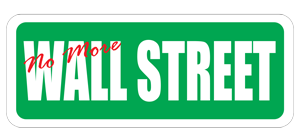Who would have thought – way back in March when this whole thing took over our lives – that this tiny virus would still be impacting our lives so significantly at Thanksgiving?
Well – here we are. So we’ve put together some year-end thoughts about how you might clean up some financial ‘loose ends’ to be more financially Covid-prepared.

Spending – Think of your household as a micro-economy of its own. Income comes in – expenses go out. Most of us have a desire for more income, but little control over it. On the other hand, we have total control over our spending, but little motivation to do so. In a time when income insecurity is high, spending control is at a premium.
Sit down with your family or spouse, and inventory your spending. Answer the question – where did the money we took in last month – go? It doesn’t have to be a four-hour session – and you don’t need to account for every penny. But chances are – just going through the exercise will reveal some opportunities for saving.
Insurance – Most of us are far more house-bound than we ever imagined. Some families are re-considering things like whether they need two cars or not. Even if that’s not a consideration for you – what about your car insurance? Most carriers set their premium rates based on the number of miles you tend to drive in a year. Perhaps a simple call could result in a rate reduction.
While your at it – your chances of having an accident are halved if you’re driving half as much. So would it be a good time to raise the deductible on your collision coverage – or drop it altogether (particularly if you drive an older car)?
Debt – What debts do you have – credit cards? A mortgage? A Car Payment (or two)? Student loans? Debt is an interesting thing – financially speaking that is. It may be the only financial contract we enter into where we don’t have to pay all we agreed to pay – and we’re still in compliance with the contract.
Could this be the time to look at applying some of those insurance and other spending savings to accelerate the repayment of your debts? That would create another kind of savings on it’s own – interest savings!
Taxes – Here are two ideas in one category. If you typically get a tax refund, dump the notion that that’s a good thing. You’re giving an interest free loan to the government. So adjust your W-9 exemptions through your employer so that you don’t get a tax refund, but get extra money in your paycheck each month instead.
In addition, the CARES Act allows qualified individuals with money in tax–qualified account like 401ks and others – to take up to $100,000 out of those plans penalty-free, and spread the tax liability over 3 years. There are at least two good reasons to consider taking advantage of this rare government gift.
First, the future of qualified plans is growing more suspect by the day. It may be a good time to have some money you can both access and control on your own. Availing your money of the full range of investment options (rather than the limited options offered by an employer-sponsored plan) may be just what the doctor ordered.
In addition, most believe the tax rates that will be applied to that money will be nothing but higher in the future – perhaps much higher. That may make this the best possible time to take some money out – pay taxes at bargain-basement rates – and spready the cost over 3 years.
Estate Documents – Okay – not everyone’s favorite subject. But if you or a family member were to die without an estate plan, your assets will go through the probate process – which is ugly, costly, and delays the passing of your assets to those you want to have them.
Today, putting together a proper and legal estate plan is neither difficult, expensive, nor does it require an attorney anymore. With Covid a reality in our daily lives, this may be the time to take something you know you should have done long ago – but have put off – and fill the void.
A few hours of attention to these four basics of your financial life could make you far more ready for the future of uncertainty we likely face. Isn’t it worth your time to slow down and consider a financial reset at your house?





